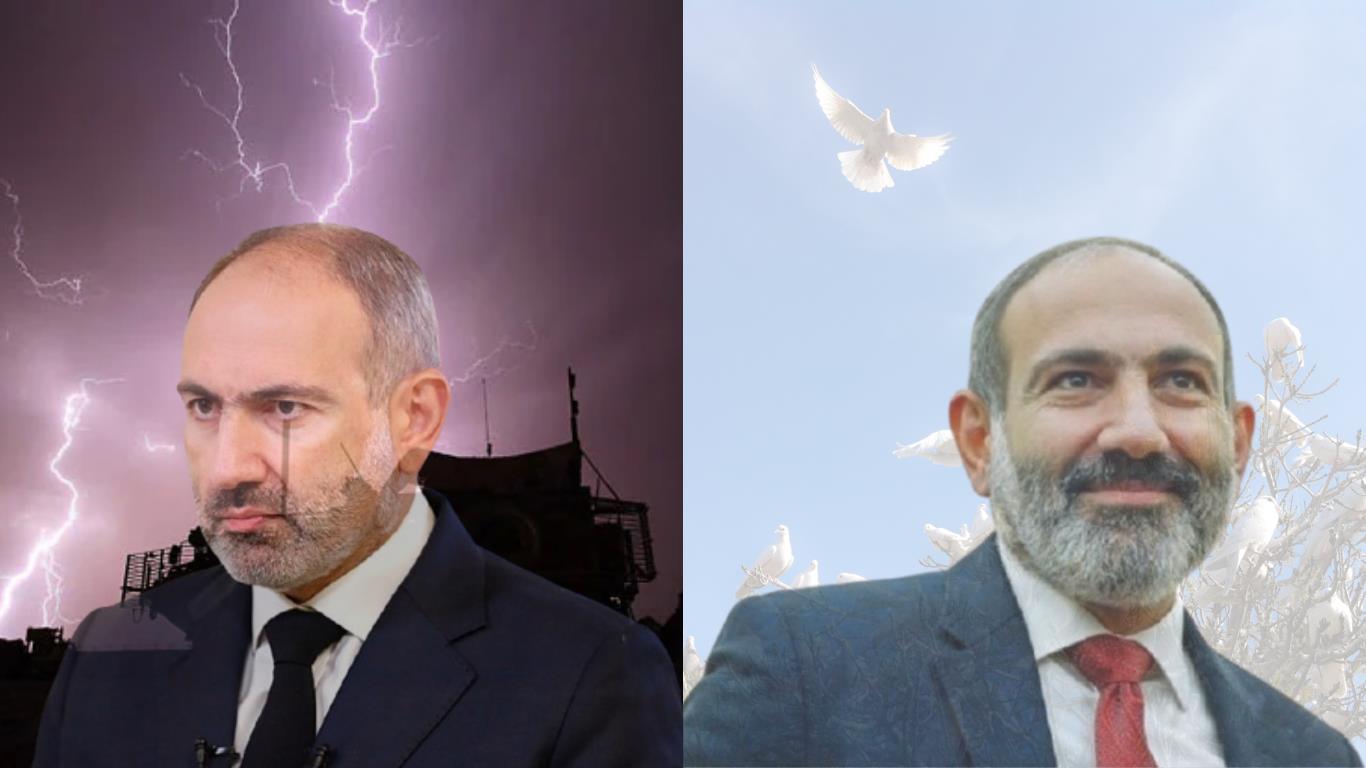
Pashinyan's Peace Rhetoric Questioned As Defence Spending Escalates
The increasingly incomprehensible foreign policy of Armenian Prime Minister Nikol Pashinyan in recent days has taken on the characteristics of a double game. His public statements, presented as a "call for peace," are inconsistent with the behind-the-scenes actions unfolding. For example, Pashinyan claims that the package of proposals for a peace agreement is fully prepared and that he is waiting for Azerbaijan to take the next step. However, in reality, Armenia appears to have an entirely different agenda.
Yerevan's rapid militarization, including the deployment of fortifications and artillery installations along the borders, along with its covert plan to accuse Azerbaijan of a fabricated attack, further suggest the growing tensions in the region. As officially noted by the Azerbaijani Ministry of Foreign Affairs, Armenia “maintained more than ten thousand trained armed formations equipped with heavy weapons on Azerbaijani territory for three years after the end of the 44-day war.”
If Armenia is so determined to secure peace, then why does Yerevan's military budget continue to swell year after year? What rationale does a“peace-loving” state have for increasing its military budget from $600 million to $1.6 billion in just the past three years?
Setting this aside, can Armenia's ongoing refusal to relinquish its territorial claims, coupled with its attempt to resurrect the term“conflict” through absurd statements in the French Senate, be considered consistent with a genuine desire for peace? Talking about friendship while promoting hostility is neither a step that fits into diplomacy nor a reflection of human honor. The games Armenia has played thus far with the help of French officials are a well-known tactic.
Against the backdrop of Prime Minister Nikol Pashinyan's lavish meeting with the French leadership at the Élysée Palace and his biased statements, the conference held by the French Senate titled "The Return of Armenians to Karabakh" further underscores that Armenia is preparing for a new escalation rather than pursuing "peace." On one hand, the re-emergence of the so-called "Nagorno-Karabakh" issue, and on the other, Yerevan's push for rapid militarization and Pashinyan's biased rhetoric, indicate that the peace talks are nothing more than a mere formality from any perspective.
Reverting to miatsum in French scenario
At a time when Pashinyan is accusing Azerbaijan of a so-called attack plan, discussing Azerbaijani territories in France is a blatant violation of international law. French senator Marie-Do Aeschlimann, a member of the France-Armenia Friendship Group, stated that the goal was to place the so-called Nagorno-Karabakh issue at the centre of the debate.
According to her, the event discussed the“safe return” of Armenians to Nagorno-Karabakh, its recognition, and how the French Senate, in partnership with Armenians, could support this movement.
Armenia's open threats against Azerbaijani territories are part of a deliberate return to its past miatsum ideology. So why does Pashinyan view the return of Western Azerbaijanis to Yerevan as a threat?
Return of Western Azerbaijanis: Pashinyan's contradicting views on territorial issue
In another statement, Prime Minister Nikol Pashinyan declared that the concept of returning to Western Azerbaijan presents “concrete threats to the territorial integrity of Armenia.” He called on Azerbaijan to“abandon its policy of escalation and sign an institutional peace agreement.”
However, the other side should recognize that the "institutional peace" mentioned by the Prime Minister does not simply entail Armenia's recognition of Azerbaijan's territorial integrity in political statements. It must also involve the removal of territorial claims from Armenia's Constitution and other legal documents.
Regarding Pashinyan's claims of threats, the concept of returning to Western Azerbaijan is grounded in principles enshrined in international law, such as the "right of return" (as outlined in the Universal Declaration of Human Rights and the International Covenant on Civil and Political Rights). The implementation of these principles has no bearing on Armenia's territorial integrity and poses no threat to it.
The Declaration of Independence of Armenia, which serves as the basis for the Armenian Constitution, references Western Armenia. This, in itself, can be viewed as a legitimate territorial claim. It is, therefore, surprising that Armenia expresses concern over the demands of several NGOs for the legitimate right of return.
Furthermore, institutional peace requires a halt to Armenia's rapid militarization. Given the existing territorial claims outlined in Armenian law, all offensive weapons may one day become legitimate targets.
Legal Disclaimer:
MENAFN provides the information “as is” without warranty of any kind. We do not accept any responsibility or liability for the accuracy, content, images, videos, licenses, completeness, legality, or reliability of the information contained in this article. If you have any complaints or copyright issues related to this article, kindly contact the provider above.
Market Research

- Manuka Honey Market Report 2024, Industry Growth, Size, Share, Top Compan...
- Modular Kitchen Market 2024, Industry Growth, Share, Size, Key Players An...
- Acrylamide Production Cost Analysis Report: A Comprehensive Assessment Of...
- Fish Sauce Market 2024, Industry Trends, Growth, Demand And Analysis Repo...
- Australia Foreign Exchange Market Size, Growth, Industry Demand And Forec...
- Cold Pressed Oil Market Trends 2024, Leading Companies Share, Size And Fo...
- Pasta Sauce Market 2024, Industry Growth, Share, Size, Key Players Analys...


















Comments
No comment